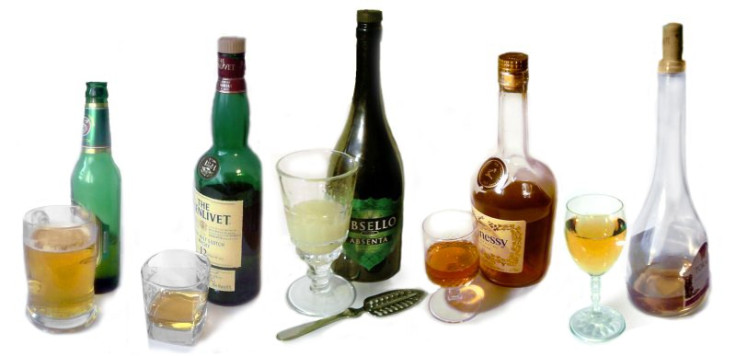Protein That Causes Alcohol Addiction Identified

A protein which controls our urge to eat is involved in alcohol addiction, researchers from the Scripps Research Institute have found. Peptide ghrelin, which is known to stimulate eating, is said to play a major role in alcohol addiction.
The discovery points to new possibilities for designing drugs to treat alcoholism and other addictions.
The discovery was made while studying the amygdala region of the brain. Amygdala is thought to be a key region in the transition to alcohol dependence, that is, a biological change from experiencing a pleasant sensation upon consumption of alcohol to the need to consume alcohol to relieve unpleasant, negative feelings due to the lack of its consumption.
In animals addicted to alcohol, the central nucleus of the amygdala controls increased consumption. Now researchers have found that peptide ghrelin also plays a major role in alcohol addiction.
Peptide ghrelin is best known for stimulating eating through its action on a receptor known as GHSR1A in the hypothalamus region of the brain. But scientists have found that gene defects in both ghrelin and the GHSR1A receptor were associated with severe cases of alcoholism in animal models. Alcoholic patients have higher levels of ghrelin peptide circulating in their blood compared to non-alcoholic patients. And, the higher the ghrelin levels, the higher the patients' reported craving for alcohol.
"This is the first study to characterise the effects of ghrelin on neurons in a brain region called the central nucleus of the amygdala," said Marisa Roberto, researcher at the Scripps Research Institute. "There is increasing evidence that the peptide systems regulating food consumption are also critical players in excessive alcohol consumption. These peptide systems have the potential to serve as targets for new therapies aimed at treating alcoholism."
To know how peptide ghrelin is associated with severe cases of alcoholism, researchers conducted a study on mice.
One group of mice were fed with 10 ml of alcohol, whereas the other group of mice did not recieve alcohol for a week.
After a week, researchers examined neurons from alcohol-addicted and control rats (which were not given alcohol), when both ghrelin and ethanol were added. First, the scientists added ghrelin followed by ethanol. This resulted in an even stronger increase in GABAergic responses in these neurons. GABAergic is a neurotransmitter that contributes to alcohol intoxication and it makes a person get addicted to alcohol.
When the scientists reversed the order, adding ethanol first and ghrelin next, ghrelin did not further increase GABAergic transmission. This suggests that ghrelin could be potentiating the effects of alcohol in the central nucleus of the amygdala, in effect, priming the system.
"Our results point to both shared and different mechanisms involved in the effects of ghrelin and ethanol in the central nucleus of the amygdala. Importantly, there is a tonic ghrelin signal that appears to interact with pathways activated by both acute and chronic ethanol exposure. Perhaps if we could find a way to block ghrelin's activity in this region, we could dampen or even turn off the cravings felt by alcoholics," said Roberto.
© Copyright IBTimes 2025. All rights reserved.



















